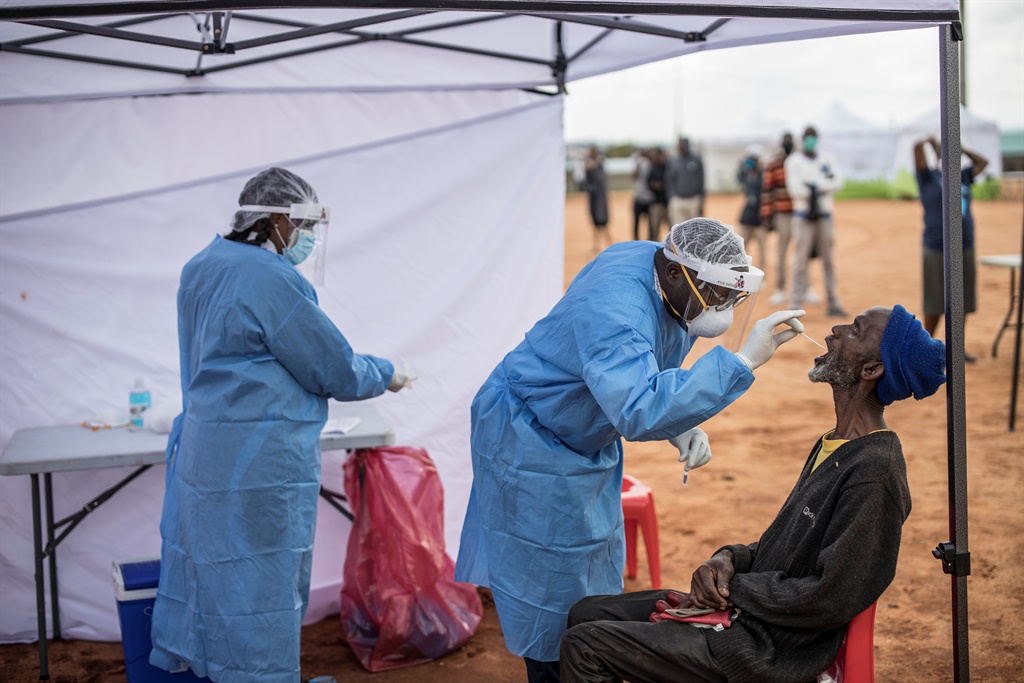


An elderly man opens his mouth to receive a testing swab for Covid-19 coronavirus.
- The process with which the government drafted its lockdown regulations for Level 4 was challenged in court due to the short time frame allowed for public participation.
- The government says a public participation process was not necessary.
- Judgment has been reserved.
The rationality of the government’s regulations for the Level 4 lockdown was challenged in court on Monday due to the short time allowed for public participation.
The controversial regulation continuing the ban on smoking, which was announced by Cooperative Governance and Traditional Affairs Minister Nkosazana Dlamini-Zuma, is among those questioned. Dlamini-Zuma said the decision was reached after public consultation.
Last month, Mpiyakhe Dlamini, Duwayne Esau, Tami Jackson, Lindo Khuzwayo, Mikhail Manuel, Neo Mkwane, Scott Roberts and Riaan Salie asked the Western Cape High Court in Cape Town to declare the lockdown regulations invalid and the National Coronavirus Command Council inconsistent with the Constitution and Disaster Management Act.
On Monday, judges Rosheni Allie and Elizabeth Baartman listened to arguments via a virtual platform. They reserved judgment.
READ | Govt wants DA’s ConCourt challenge dismissed with costs
Advocate Anton Katz SC, for some of the applicants, said: “The process chosen by the government to make the regulations failed the rationality test in the process stage.”
He added they were in dispute with the respondents on whether or not public participation was required – he said yes, they said no.
However, there was a public participation process, but the process was not rational, Katz argued.
On 25 April, he said, a notice that there was a process for public comment appeared on the Department of Cooperative Government and Traditional Affairs’ website, and Dlamini-Zuma mentioned it during a press conference on the same day.
‘Defective’
The deadline for submissions was 12:00 on Monday 27 April. The regulations were announced on Wednesday evening 29 April. Katz argued it was impossible to consider 70 000 submissions during that time.
“It was a defective process,” he said. “We submit, a process from Saturday to Wednesday can never be what we could call rational.”
Allie said a truncated process was acceptable under the circumstances of dealing with a pandemic, “but not this truncated”.
Advocate Marumo Moerane SC, for Dlamini-Zuma, did not directly respond to the concerns Katz raised about the process.
“We submit the regulations are constitutional,” he said.
Moerane added it was common cause the regulations limited the rights contained in the Bill of Rights, but it was instituted to protect rights – also protected by the Bill of Rights – threatened by the Covid-19 pandemic.
He argued the government’s lockdown response was guided by science and that it had saved thousands of lives.
Moerane said the process was “procedurally rational” and the Disaster Management Act did not require public participation.
“Our learned friends have not dealt with the issue of the truncation,” Katz said.

